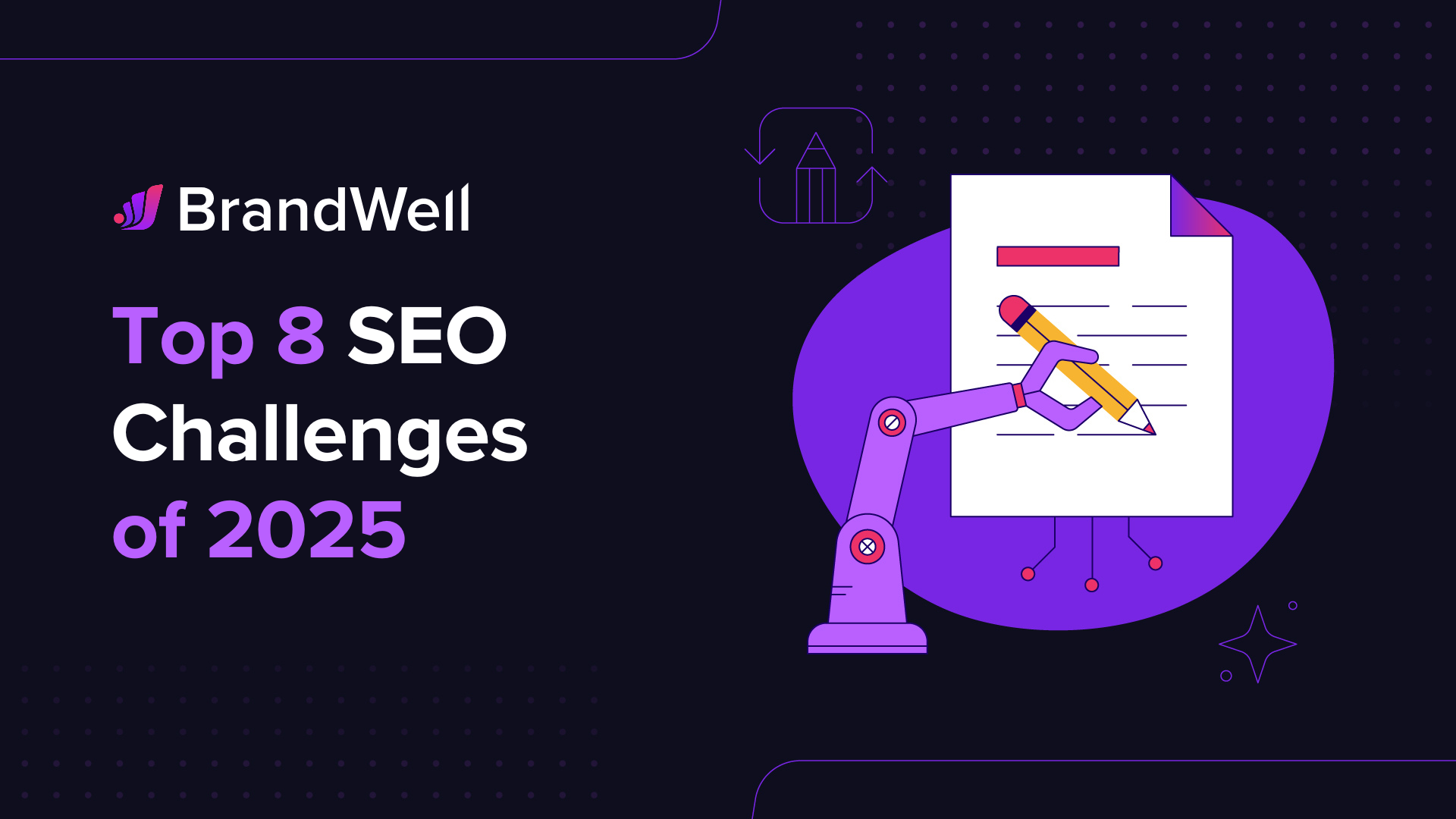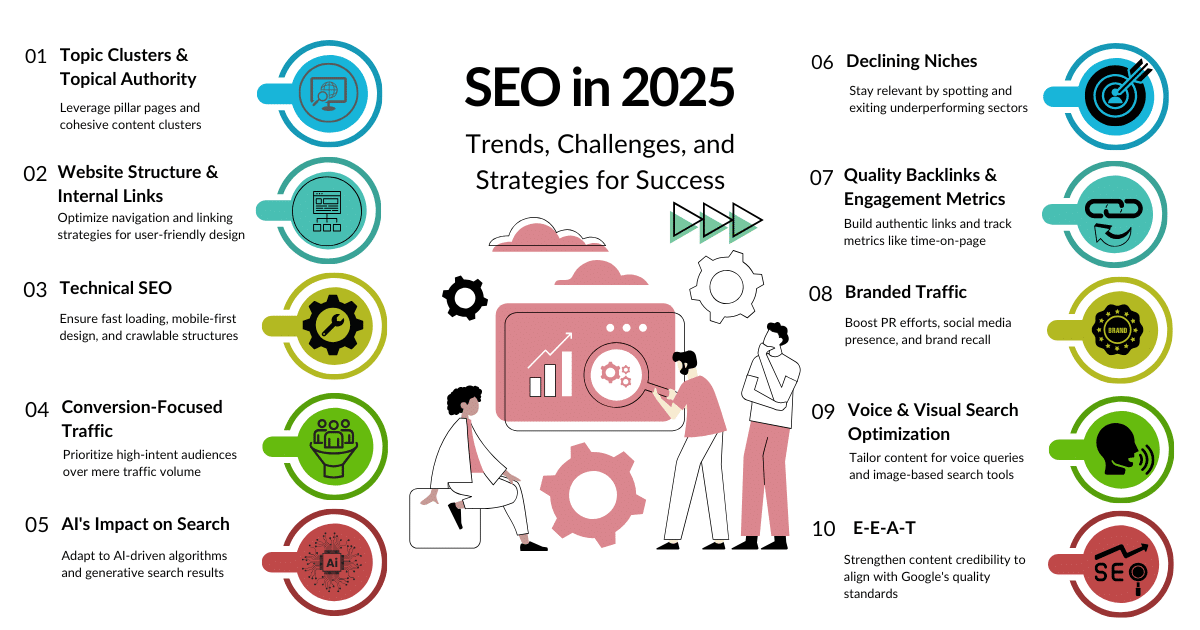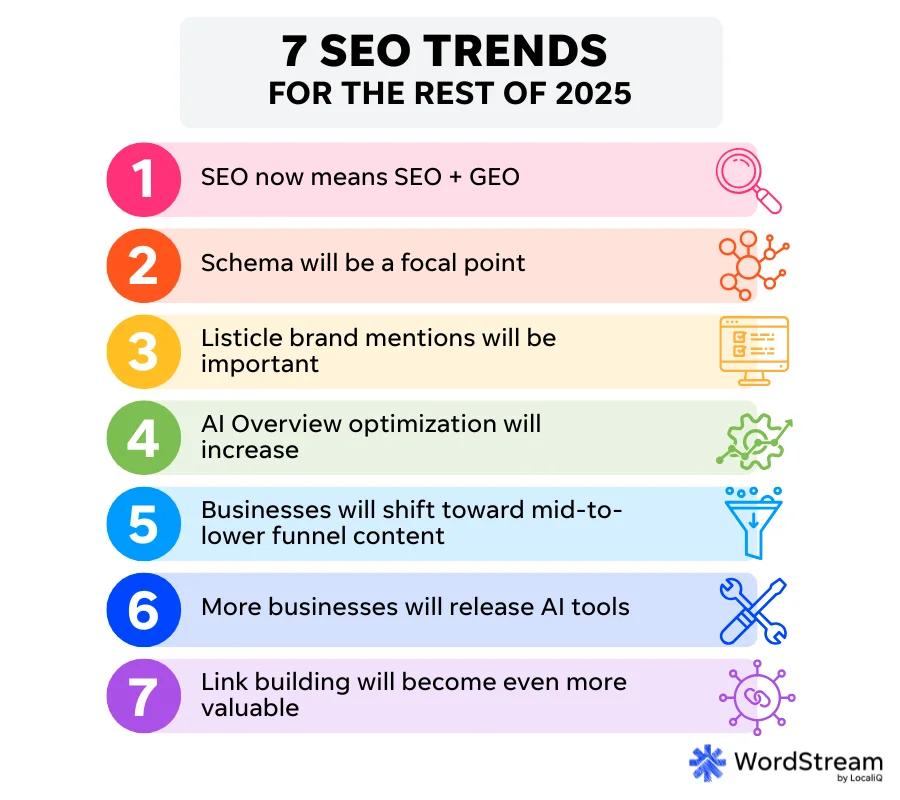Common SEO challenges in 2025 include targeting the wrong keywords, slow page loading, changing search engine algorithms, duplicate content, poor website structure, and evolving user behavior such as mobile-friendliness and AI-generated content. Overcoming these challenges requires a combination of strategic keyword research, technical optimization, content quality focus, and adaptability to algorithm updates.
Key SEO challenges and how to overcome them:
-
Targeting the wrong keywords: Many sites focus on highly competitive short-tail keywords or irrelevant high-volume terms. The solution is to target relevant long-tail keywords that match user intent, using thorough keyword research tools like Google Keyword Planner or Moz.
-
Slow-loading pages: Page speed affects rankings and user experience. Optimize images, leverage caching, and improve server response times to enhance loading speed.
-
Changing algorithms: Search engines frequently update their algorithms, impacting rankings unpredictably. Stay informed through SEO blogs and forums, analyze traffic changes, and maintain a flexible strategy to adapt quickly.
-
Duplicate content: Duplicate or overlapping content dilutes page authority and confuses search engines. Use tools like Google Search Console and Screaming Frog to detect duplicates, then consolidate with 301 redirects, rewrite content, or apply canonical tags.
-
Poor website structure and internal linking: A disorganized site hinders crawlability and user navigation. Conduct SEO audits to identify broken links, missing meta tags, and improve internal linking strategies.
-
Mobile-friendliness: With increasing mobile search, sites must be responsive and fast on mobile devices to rank well.
-
Low-quality content and AI-generated content risks: Focus on creating thorough, user-centric content that answers search intent clearly, avoiding jargon and filler. Monitor AI-generated content for originality and value.
-
Index management and keyword cannibalization: Ensure proper indexing of pages and avoid multiple pages competing for the same keywords by consolidating or differentiating content.
-
User experience optimization: Enhance Core Web Vitals and overall UX to improve engagement and rankings.
-
Link building evolution: Shift from traditional backlink quantity to quality brand mentions, co-branded content, and strategic partnerships.
-
Data privacy and compliance: Adapt SEO strategies to comply with GDPR, CCPA, and privacy-first architectures, which affect data collection and site design.
Practical steps to overcome these challenges include:
-
Conduct regular SEO audits covering technical, on-page, and off-page factors.
-
Use structured data to help search engines understand content better.
-
Perform competitive analysis to identify content gaps and backlink opportunities.
-
Implement A/B testing to optimize user engagement and conversion rates.
-
Maintain a resilient, adaptive mindset to continuously refine SEO strategies in response to evolving algorithms and market conditions.
Addressing these challenges systematically will improve search visibility, user experience, and ultimately drive better business results through SEO.





